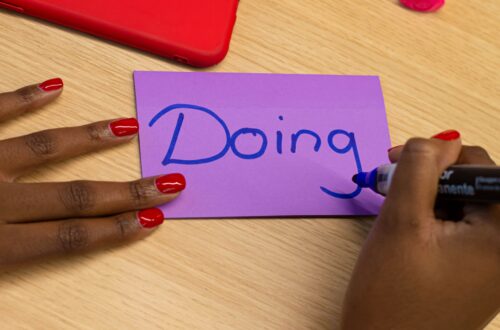Ever wonder why you feel wiped out even after a full night’s sleep or why your motivation dips right after lunch? It’s not always obvious what’s zapping your energy throughout the day. Believe it or not, some everyday habits might be silently draining your vitality, making you feel tired and sluggish. The good news? Once you identify and adjust these sneaky energy vampires, you’ll feel more vibrant and alive than ever.
Let’s dive into the 8 bad habits that are secretly draining your energy and how to tackle them head-on.
1. Constantly Checking Your Phone
The Energy Zap of Digital Addiction
Raise your hand if you’ve ever caught yourself mindlessly scrolling your phone for minutes — or hours — at a time. This digital habit may seem harmless, but constantly checking your phone floods your brain with unnecessary stimuli, creating mental fatigue faster than you think. Every notification pings your brain’s reward system, making you feel like you need to respond immediately, which is exhausting.
How to Set Healthy Boundaries
Try designating “phone-free” times throughout your day. Start with small chunks, like during meals or the first 30 minutes after waking up. Apps like Forest or Focus@Will can help keep you off your phone and boost focus. Remember, reclaiming your attention means reclaiming your energy.
2. Skipping Meals or Poor Nutrition
Impact on Energy Levels
Food is fuel — but skipping meals or eating junky, processed snacks can send your energy plummeting. When you don’t eat enough or opt for sugary snacks, your blood sugar spikes and crashes, leaving you feeling drained and irritable. It’s like putting diesel in a gasoline engine; the car just won’t run right.
Simple Nutritious Habits to Boost Energy
Focus on balanced meals with lean proteins, whole grains, and plenty of veggies. Snacks like nuts, yogurt, or fruit can keep your energy steady throughout the day. Meal prepping can be a game-changer here, ensuring you always have something healthy ready to go.
3. Lack of Quality Sleep
Why Sleep Matters
Sleep isn’t just downtime — it’s when your body repairs and recharges. Without good sleep, your brain can’t consolidate memories, repair tissues, or regulate hormones properly. Poor sleep leads to chronic fatigue, poor concentration, and even mood swings.
Tips for Better Sleep Hygiene
Establish a relaxing bedtime routine: dim the lights, avoid screens at least an hour before bed, and stick to a consistent sleep schedule—even on weekends. Tools like white noise machines or apps such as Calm can also help soothe you to sleep.
4. Sitting for Too Long
How Sedentary Lifestyle Drains Energy
Sitting might be the new smoking, according to some health experts. Staying seated for hours reduces blood circulation and slows your metabolism, leading to stiffness, fatigue, and even lower mood.
Easy Ways to Stay Active Daily
Try the “Pomodoro” technique — every 25 minutes, stand up and stretch or walk for 5 minutes. Desk exercises, short walks, or even standing desks can make a huge difference in how energized you feel.
5. Chronic Stress
The Toll Stress Takes on Your Body
Stress triggers the release of cortisol and adrenaline — great for short bursts, but harmful when constant. Chronic stress wears down your immune system, saps mental energy, and can even cause physical symptoms like headaches and muscle tension.
Practical Stress Management Techniques
Incorporate daily mindfulness, meditation, or breathing exercises. Apps like Headspace or Insight Timer guide you through stress relief practices. Also, don’t underestimate the power of talking to a friend or therapist.
6. Dehydration
Signs of Dehydration
Feeling tired? It might be because your body is running low on water. Dehydration often causes headaches, dizziness, and difficulty concentrating — all classic energy killers.
How Much Water Do You Really Need?
Aim for at least 8 cups (about 2 liters) a day, but this can vary based on your activity level and climate. Keep a reusable water bottle nearby as a reminder, and add slices of lemon or cucumber for flavor.
7. Negative Self-Talk
Mental Energy Drains
Ever catch yourself thinking, “I’m so tired,” or “I can’t do this”? Negative self-talk is like an emotional anchor pulling your energy down. It’s draining because it saps your motivation and increases stress.
Cultivating a Positive Mindset
Try flipping those thoughts around: instead of “I’m tired,” say “I’m working through this.” Practice gratitude journaling or daily affirmations to build mental resilience. Over time, this rewires your brain to conserve and boost energy rather than waste it.
8. Overcommitting Yourself
The Hidden Cost of Saying “Yes” Too Often
Trying to do everything is a classic energy-drain trap. When you overcommit, you spread yourself thin, leading to burnout and exhaustion. Your brain and body can only handle so much before they revolt.
Learning to Prioritize and Say “No”
Get clear on your priorities. Use tools like the Eisenhower Matrix to differentiate urgent from important tasks. Remember, saying “no” isn’t selfish — it’s self-care.
The Cumulative Effect of These Habits
When these bad habits pile up, their energy-draining effects multiply. The constant stress, poor nutrition, lack of movement, and mental clutter build a vicious cycle that’s tough to break. But awareness is the first step — and change is possible.
How to Start Reversing These Energy Drainers
Start small. Pick one habit that feels most manageable to change and focus on that for a week. Track your progress and celebrate wins, no matter how small.
Small Changes for Big Energy Gains
Simple shifts like drinking more water, setting screen time limits, or taking a 5-minute walk can drastically boost your daily energy. The key? Consistency.
The Role of Mindfulness and Self-Care
Regular mindfulness practice and self-care routines are not just trendy—they’re essential. They help you tune into your body’s real needs and recharge your mental batteries.
Conclusion
Your energy is your most valuable asset, yet it’s often drained by habits we don’t even realize we have. From digital distractions to poor nutrition and mental stress, these 8 bad habits quietly chip away at your vitality. The great news is you have the power to flip the script. By becoming aware and making small, sustainable changes, you can reclaim your energy, boost your productivity, and feel more alive every day. Start today, and watch your energy soar!
FAQs
Q1: How quickly can I notice improvements after changing these habits?
Most people feel some boost in energy within a few days to a couple of weeks after adopting healthier habits, but consistency is key.
Q2: Are there any apps you recommend to help manage phone addiction?
Yes! Apps like Forest, Moment, and Stay Focused are great for limiting phone use and improving focus.
Q3: What is the best way to handle stress if I have a very busy schedule?
Even short, 5-minute breathing exercises or mindfulness breaks can significantly reduce stress, making them ideal for busy people.
Q4: Can drinking caffeine replace the need for better sleep?
No. Caffeine is a temporary fix but doesn’t replace restorative sleep. Over-relying on caffeine can worsen fatigue.
Q5: How can I motivate myself to stay active if I hate exercising?
Find fun, low-impact activities like walking with a friend, dancing, or gentle yoga. The key is moving your body regularly in a way you enjoy.





